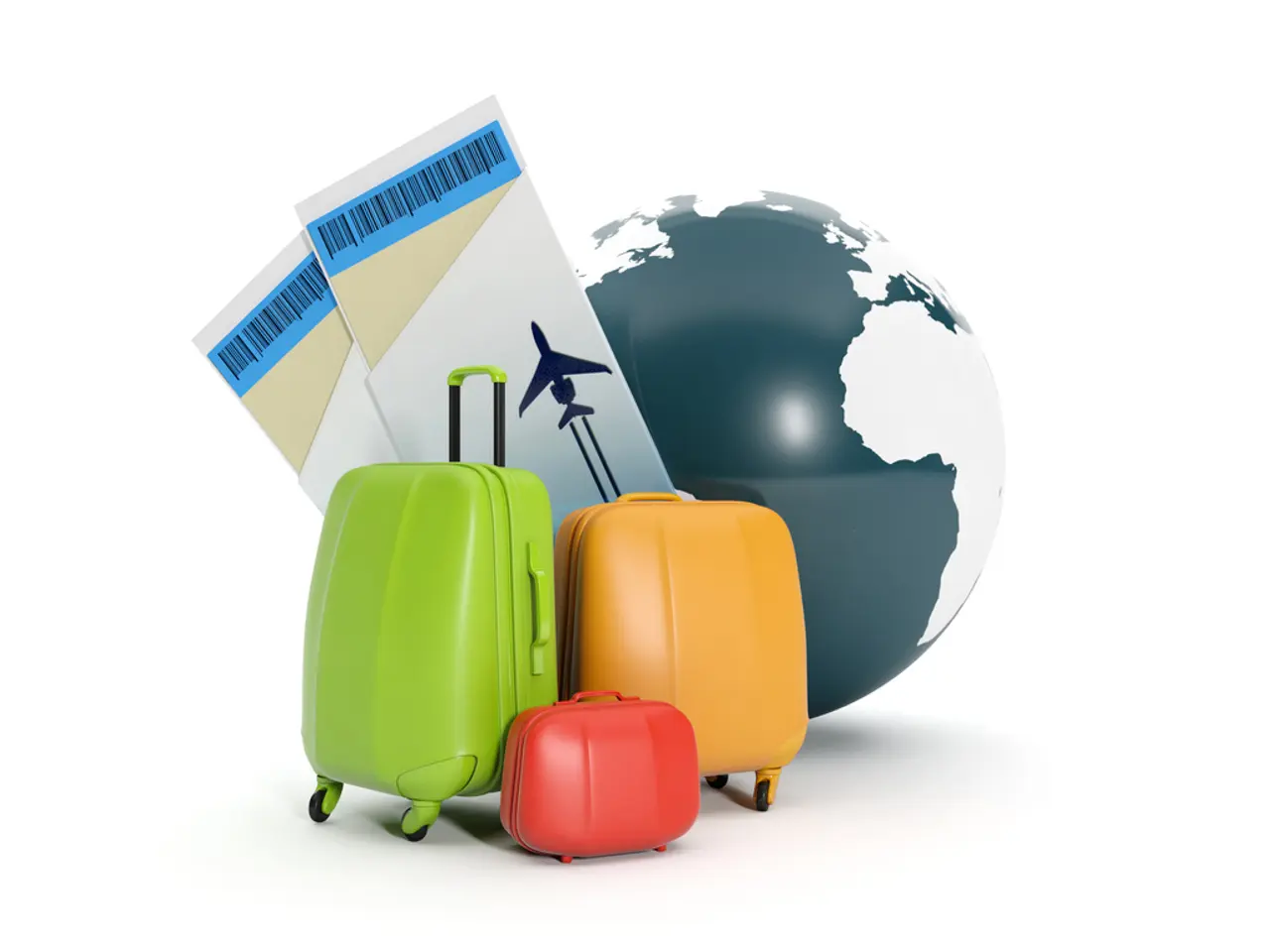Essential Travel Apps for Multi-City Jetsetters to Install
In the bustling world of travel, navigating complex itineraries can be a daunting task. However, the digital age has brought forth a plethora of innovative apps and platforms designed to make multi-city trips a breeze. Here are some of the top solutions for 2025 that cater to the needs of the modern multi-city flyer.
One such app is Kiwi.com, which specialises in multi-city and intricate trip planning. With features like virtual interlining, it connects flights across airlines that do not usually collaborate, offering cost savings and customised routes. The NOMAD tool suggests cheaper fares by varying stop sequences, and it provides a disruption guarantee to assist travelers if flights are delayed or cancelled, though coverage excludes airline strikes and major weather events[1].
The Bilt Travel Portal is another popular choice, allowing users to book flights, hotels, and more using points, without blackout dates, making it convenient for fixed-date multi-city travel. Bookings through the Bilt portal earn frequent flyer miles and elite status points because tickets are treated as revenue bookings on airfares, though hotel and car bookings generally do not yield rewards[2].
Google Flights is a free, comprehensive flight search tool ideal for multi-city flyers looking for flexible filtering by price, duration, stops, airlines, and alliance. Its Explore feature helps identify destinations within budget from your departure city, useful for planning multi-city routes. Although it does not show points pricing directly, it aids in finding award availability and nearby airports with better options, streamlining award bookings by filtering by airline alliance[3].
CheapOair offers competitive deals specifically targeting multi-city flights, emphasising budget-friendly travel for complex itineraries[5].
These apps empower multi-city flyers in 2025 by combining itinerary flexibility, cost savings, rewards optimization, and some disruption support, thus easing the complexity of traveling across multiple destinations within one trip.
Google Maps remains the go-to for navigation, providing real-time transit updates, driving directions, and local business details. Waze excels in traffic navigation, utilising community-driven data to provide real-time traffic updates. SeatGuru offers seating charts and reviews from fellow passengers to aid in choosing the best airline seats.
Review zones and payment systems specific to the area before traveling, as they can vary significantly. LoungeBuddy allows users to access airport lounges without a membership, while Airbnb enables the discovery of unique accommodations worldwide, with 54% of travelers preferring private rentals over hotels[6].
Google Flights offers real-time flight comparisons and fare alerts, with 76% of users using it for flexible date searches[7]. Expedia and Kayak integrate real-time pricing alerts, enabling users to monitor fare fluctuations and book at optimal times. Skyscanner offers a comprehensive search tool connecting to over 1200 airlines. Its unique 'Everywhere' option allows users to explore flight deals to any destination[8].
In conclusion, the digital revolution has made travel more accessible and less stressful for multi-city flyers. By utilising these top travel apps and platforms, travelers can enjoy seamless itinerary management, cost savings, rewards optimisation, and even some disruption support, all contributing to a more enjoyable and hassle-free travel experience.
[1] https://kiwi.com/help/nomad [2] https://bilt.com/travel [3] https://www.google.com/travel/flights/ [4] https://www.oneworld.com/ [5] https://www.cheapoair.com/ [6] https://www.airbnb.com/ [7] https://www.skift.com/2020/01/28/google-flights-is-the-most-popular-travel-app-in-the-us-and-76-of-users-use-it-for-flexible-date-searches/ [8] https://www.skyskanner.net/
- In the world of multi-city travel, apps like Kiwi.com, Bilt Travel Portal, Google Flights, CheapOair, and Expedia/Kayak provide invaluable assistance, offering itinerary flexibility, cost savings, rewards optimization, and disruption support to lessen the complexity of multidestination journeys.
- Beyond itinerary management, travelers in 2025 can enhance their lifestyle with smartphone gadgets such as Google Maps, Waze, and SeatGuru; Google Maps for navigational updates, Waze for real-time traffic data, and SeatGuru for seat selection advice based on fellow passengers' reviews.




